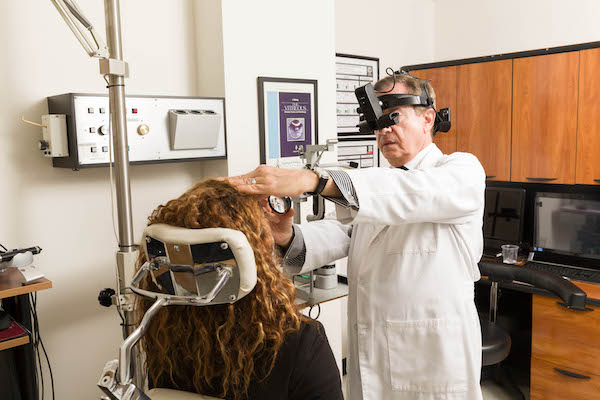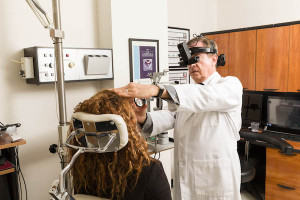
15 Mar Looking at the Facts About Macular Degeneration
 Some would say that our eyesight is our most valuable sense. It is certainly the one we rely on the most day to day. From reading signs and text messages, to recognizing friends and family, to assessing the danger of crossing a busy street or knowing where to find an emergency exit, our sight is the primary tool we use to stay safe and connected to the world around us.
Some would say that our eyesight is our most valuable sense. It is certainly the one we rely on the most day to day. From reading signs and text messages, to recognizing friends and family, to assessing the danger of crossing a busy street or knowing where to find an emergency exit, our sight is the primary tool we use to stay safe and connected to the world around us.
Now imagine that your vision is suddenly impaired. Without the practice of heavily relying on your other senses such as hearing and smell, you may feel lost and completely detached from your environment. There’s no doubt that this would be a disturbing experience — if not entirely terrifying — for the suffering individual.
This is what happens to those enduring macular degeneration, an eye disease that attacks the macula of the eye, where our sharpest central vision manifests.
Age-related Macular Degeneration, or AMD, is the number one cause of blindness and severe vision loss in adults over age 60 in the United States. AMD is a progressive disease that worsens with age. Over 200,000 new cases of AMD are reported each year, affecting up to 24% of people ages 65-74, and up to 40% of those over age 74.
Researchers have identified several genetic factors, confirming that people with a family history of AMD are at a high risk of developing the disease. It has also been found that those who smoke are twice as likely to suffer from macular degeneration.
Symptoms of the AMD eye disease include the sudden onset of floaters and flashes. Approximately one in seven people who report these symptoms will have a retinal detachment or tear.
Fortunately, with modern technology, more than 90% of patients suffering from retinal detachment can be helped with retinal detachment treatment. Over 100 eyes experiencing floaters have undergone vitrectomy surgery. This procedure removes the parts of the tissue that fill the center of the eye containing murkiness related to the sensation of floaters.
If you have a family history of eye disease or are experiencing problems with your vision, it is essential that you visit your ophthalmologist right away. You may not realize how important your eyesight is until you’ve lost it.

